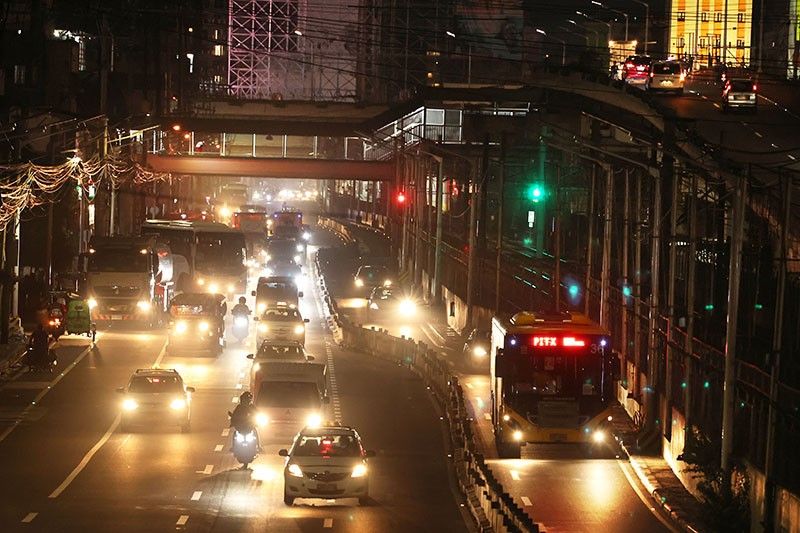Mayors firm on continuing no-contact apprehension despite opposition at LTO, SC

MANILA, Philippines (Updated 10:30 a.m.) — Metro Manila mayors are standing pat on their decision to continue the no-contact apprehension program even in the face of a Supreme Court petitions for a temporary restraining order.
"[We] have joined together on a common stance to continue the implementation of NCAP within our respective territorial jurisdictions and vow to continuously improve infrastructure and road conditions foreseeing the need for a safer environment," a joint statement issued by five local chief executive reads.
"We thank the public for sharing their sentiments on social media as we strive to improve our cities' services. Their opinions and suggestions are valuable inputs that would greatly improve our future endeavors."
The statement was signed by Valenzuela City Mayor Wes Gatchalian, Paranaque City Mayor Eric Oliverez, Quezon City Mayor Joy Belmonte, Manila City Mayor Honey Lacuna, and San Juan City Mayor Francis Zamora.
This comes after transport groups filed a petition for a temporary restraining order before the Supreme Court, while the Land Transportation Office has also called on the LGUs to temporarily suspend the policy in the absence of clearer and more uniform guidelines.
The SC has yet to act on their prayer for temporary restraining order, but it ordered the respondents to file their respective comments within a non-extendible period of 10 days from receipt of the written notice from the Court.
But the five mayors on Thursday argued that the implementation of the NCAP "resulted in" the "minimization of human intervention in traffic enforcement." This supposedly eliminated corruption, created a culture of discipline among motorists, and ensured road safety by reducing traffic violations.
"The implementation of the NCAP never disregarded motorists' due process since each local government unit has their respective traffic adjudication boards where motorists can contest and file protests or appeals," they also said.
"As we move forward, the undersigned [mayors] in the exercise of our powers as such...shall continue to implement NCAP within our cities."
Under the NCAP, state-of-the-art cameras equipped with artificial intelligence and functioning 24/7 are used to capture the plate numbers of vehicles in violation of traffic rules and regulations.
Once a violation is detected, the MMDA or local government units issue citations and mail them directly to the vehicle's registered owners. Non-payment of fines within seven days means violators’ will not be accommodated for re-registration.
Earlier in June, groups representing transport workers, jeepney drivers and operators questioned the harsh enforcement of no-contact apprehensions from the national government, particularly the Metro Manila Development Authority and the Land Transportation Office.
"The fines are openly and clearly oppressive as well as disproportionate to violations committed what is right and appropriate under a range of circumstances," Zaldy Ping-ay, Stop and Go Transport Coalition national president told Philstar.com in Filipino at the sidelines of a press conference in June.
"What is being done now is the MMDA or the local government unit immediately tags the supposed violation in the LTO database, preventing vehicle owners from being able to register their units. That is the only time the owner or operator is given notice or knowledge of such a violation, and when you defend the violation, you must first pay under the protest, while the registration process is delayed."
In a separate statement of support issued Thursday morning, the Metropolitan Manila Development Authority also said it "unequivocally recognizes and respects the local autonomy of the LGUs."
"From the MMDA experience, empirical evidence clearly showed that its own version of the [NCAP] was and continues to be an effective force multiplier to its traffic enforcers on the ground and has, in fact, raised public awareness on and compliance with the existing traffic and transports laws, rules and regulations," MMDA chair Carlo Antonio Dimayuga said in the statement.
Dimayuga added that the MMDA "is ready, willing, and able to consult and coordinate with them at the opportune time."
— Franco Luna
- Latest
- Trending





























